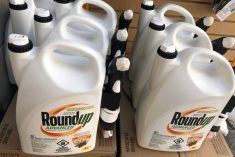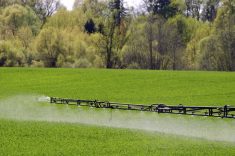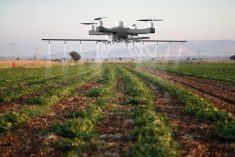U.S. seeds and agrochemicals maker Monsanto Co. has secured approval from the U.S. Environmental Protection Agency for a new dicamba-based weed killer designed for its next generation biotech soy and cotton varieties, the company said on Wednesday.
While approval had been expected, it is seen as a major step forward for the company’s newest herbicide tolerant products amid rising problems in the U.S. farm belt with weeds resistant to glyphosate, the main ingredient in Monsanto’s Roundup weed killer.
Environmental groups criticized the EPA approval.
Read Also

U.S. grains: Wheat futures rise on supply snags in top-exporter Russia
U.S. wheat futures closed higher on Thursday on concerns over the limited availability of supplies for export in Russia, analysts said.
The Center for Biological Diversity said the ruling would lead to sharp increases in pesticide use that could harm threatened plant and animal species, including the whooping crane.
“Piling on more pesticides will just result in superweeds resistant to more pesticides,” said Nathan Donley, a scientist with the group.
The EPA signed off on Monsanto’s XtendiMax herbicide for in-crop use on Roundup Ready 2 Xtend biotech soybeans, designed to tolerate applications of glyphosate and dicamba, and its Bollgard II XtendFlex cotton, which can tolerate the two chemicals as well as glufosinate.
The company is still awaiting an EPA ruling on its Roundup Xtend herbicide, a glyphosate and dicamba blend.
Farmers have used dicamba for years to kill weeds ahead of planting, but until now have not been allowed to use it on growing crops.
Monsanto has invested more than $1 billion in a dicamba production facility in Luling, Louisiana, to supply demand it expects will blossom in the coming years. The company has said the Xtend platform will be its largest-ever technology launch.
The company said it expects the soybean variety to be planted on 15 million U.S. acres in 2017 and its cotton to be planted on more than 3 million acres.
















